This article was medically reviewed by Victor Catania, MD. Dr. Catania is a board certified Family Medicine Physician in Pennsylvania. He received his MD from the Medical University of the Americas in 2012 and completed his residency in Family Medicine at the Robert Packer Hospital. He is a member of the American Board of Family Medicine.
There are 11 references cited in this article, which can be found at the bottom of the page.
This article has been viewed 29,209 times.
Researchers agree that congestive heart failure (CHF) is a serious health condition that occurs when your heart isn’t pumping blood efficiently throughout your body.[1] People who suffer from certain health conditions, such as coronary artery disease or high blood pressure, are at risk for developing CHF.[2] Experts note that although not all heart conditions can be reversed, making changes to your diet and your lifestyle will help to improve the symptoms and allow you to live a longer, fuller life.[3]
Steps
Understanding the Causes of Congestive Heart Failure
-
1Recognize the symptoms of heart failure. Heart failure does not actually mean your heart is failing or about to stop working. It means your heart muscle has weakened over time and cannot receive or pump blood as well as it used to. This can lead to congestion or a backup of blood in the heart. As a result, not enough oxygen-rich blood will be pumped to your body’s other organs.[4] Heart failure can be acute, occurring suddenly, or it can be chronic and ongoing. The symptoms of heart failure can include:[5]
- Shortness of breath when you do physical activity (dyspnea) or when you lie down (orthopnea)
- Fatigue and weakness.
- A rapid or irregular heartbeat.
- Swelling (edema) in your legs, ankles, and feet. Your abdominal area may also swell due to fluid build-up (ascites).[6]
- Reduced ability or inability to exercise.
- Persistent coughing or wheezing with white or pink blood-tinged phlegm.
- Increased need to urinate at night.
- Sudden weight gain due to fluid retention.
- Lack of appetite and nausea.
- Difficulty concentrating and decreased alertness.
- Chest pain.
-
2Link heart failure to other heart problems. Heart failure is often the result of other heart problems or issues that become worse or that weaken your heart. You can experience heart failure on the left side or ventricle, on the right side or right ventricle, or both sides of your heart at once. In general, heart failure starts on the left side of your heart, which is your heart’s main pumping chamber. Heart conditions that can lead to heart failure include:[7]
- Coronary artery disease: This is the most common form of heart disease and the most common cause of heart failure. If you have this disease, your arteries begin to narrow due to a buildup of fatty deposits, causing a reduction of blood flow to your heart. This disease can lead to a heart attack, as the buildup of fatty deposits can cause a blood clot to form and block blood flow to your heart.
- High blood pressure or hypertension: Blood pressure is amount of force of blood that is pumped to your heart by your arteries. If you have high blood pressure, this means your heart has to work harder than normal to circulate blood throughout your body. Over time, your heart muscle may become thicker to make up for the extra work it needs to perform to get blood to all your organs. This could then cause your heart muscle to become too stiff or weak to pump blood effectively.
- Faulty heart valves: You can develop faulty heart valves due to a heart defect, coronary artery disease or a heart infection and it can force your heart to work harder than normal to keep blood flowing in your body as it should. This extra work can weaken your heart and lead to heart failure. However, it is possible to fix faulty heart valves if they are treated in time.
- Damage to your heart muscle, or cardiomyopathy: Damage to your heart muscle can be caused by diseases, infections, alcohol abuse and drug abuse. Some drugs used for chemotherapy can also lead to cardiomyopathy. As well, you may be genetically predisposed to developing cardiomyopathy.
- Abnormal heart rhythms or heart arrhythmias: This condition can cause your heart to beat too fast, which forces your heart to work overtime to pump blood to your body. A slow heartbeat can also prevent your heart from getting enough blood to your body and could lead to heart failure.
- The causes of acute heart failure can include viruses that attack your heart muscles, allergic reactions, severe infections, blood clots in your lungs, and the use of certain medications.
Advertisement -
3Talk to your doctor if you are at risk of heart failure. If you have any heart conditions that could lead to heart failure, it’s important that you speak to your doctor about your condition. Most heart problems are chronic and require lifelong care, including maintaining a healthy diet and lifestyle, as well as taking heart medications.[8]
- The best way to prevent your heart condition from developing into heart failure is to allow your doctor to monitor your heart condition and follow a strict diet and lifestyle that does not aggravate your heart. Depending on your heart condition, your doctor may prescribe medication to support your heart muscle that you should take regularly, according to the dosage prescribed by your doctor.
Adjusting Your Diet
-
1Reduce your sodium intake. Sodium is like a sponge, it will hold extra water in your body and force your heart to work even harder than it already does. Reducing your sodium intake will reduce the amount of stress on your heart and prevent your heart condition from turning into congestive heart failure. Though it may be difficult to remove salt from your diet or reduce your intake drastically, you may notice deeper flavors in food when you do not use salt.[9]
- Remove the salt shaker from the dinner table and avoid putting dashes of salt in your food before you eat. Instead, you can season your food with lemon or lime juice, as well as spices low in sodium.
- You should also watch for foods that contain hidden salt, like olives, pickles, and packaged vegetables and soups, as well as sports or energy drinks. Cheese and cured meats are very high in sodium and should also be cut out of your diet.
-
2Maintain a healthy, balanced diet. To prevent your heart from having to work overtime, keep your body healthy by eating a diet that includes a balance of fruits and vegetables, whole grains, low-fat dairy products and lean proteins. Make sure your meals contain one protein source, one low fat source and one low carb vegetable source. Your carb intake should be in the recommended range of 20-50 grams per a day.[10]
- Cut out carbs, sugars, and animal fats. Foods high in carbs and sugars cause your body to secrete insulin, which is a main fat storage hormone in your body. When your insulin levels go down, your body can start to burn fat. It also helps your kidneys shed excess sodium and water, which will help you reduce any water weight.[11]
- Avoid foods high in starch and carbs like white breads and potatoes. Junk foods like potato chips and french fries are also chock full of salt. You should also avoid consuming foods high in sugar like soft drinks, candy, cakes, and other junk food.
-
3Cook with salt-free seasonings and spices. Replace salt when cooking with salt-free herb and spice combinations. You can make salt-free seasonings in advance by placing ½ cup of the seasoning blend in a glass jar and keeping it in a cool, dry place. You can then simply sprinkle it onto your food when cooking for added flavor without added salt.[12] [13]
- Use Chinese 5 Spice on chicken, fish or pork: Combine ¼ cup ground ginger, 2 tablespoons of ground cinnamon and ground cloves, and 1 tablespoon of ground allspice and anise seed.
- Put a mixed herb blend on salads, pastas, steamed vegetables, and baked fish: Combine ¼ cup dried parsley flakes, 2 tablespoons dried tarragon, and 1 tablespoon of dried oregano, dill, and celery flakes.
- Use an Italian blend on tomato based soups, pasta sauce, pizza, and bread: Combine 2 tablespoons of dried basil, dried marjoram, dried thyme, dried rosemary, and dried red pepper flakes. You can then add 1 tablespoon of garlic powder and dried oregano.
- Make an easy dip blend to mix with cottage cheese, yogurt, or low-fat sour cream: Combine ½ cup dried dill with 1 tablespoon of dried chives, garlic powder, and lemon zest.
- You should rub dried herbs between your fingers to release more flavor and aroma. You can also use fresh herbs in dishes by finely chopping them with a knife or cutting them up with kitchen shears.
-
4Check the labels of packaged foods for the sodium content. Many processed foods contain high levels of sodium, so before you buy any packaged or processed foods, check the label. Most processed foods that come in cans or boxes, like ramen noodles, canned vegetables, tomato juice, and instant potatoes, are too high in sodium.[14]
- Look at the sodium content per serving and determine the number of servings in the package. You should buy packaged foods that have a sodium content of less than 350 milligrams per serving. If salt or sodium is listed in the first five ingredients in the packaged food, it is too high in sodium. Look for an alternative packaged food or skip the packaged food all together and go for fresh fruits and vegetables instead.
-
5Request food low in salt when eating out. Rather than avoid eating out, look for food options that have less sodium and let your server know you are on a low-sodium diet. You can then ask the server for suggestions on the menu that are low in sodium.[15]
- When eating out, go for grilled, baked, or broiled proteins, like meat, chicken or fish, without sauce or gravy. Use lemon and pepper to add flavor, rather than salt. Try a side of steamed rice or baked potato, rather than mashed potatoes or fried rice.
- You should also avoid using condiments like relish, pickles, and olives. Put only a small amount of ketchup, mustard, or mayonnaise on your food.
Adjusting Your Lifestyle
-
1Do cardio exercise and physical activity at least three to four days a week. Doing even moderate exercise three to four times a week can help your body stay healthy and reduce the demands placed on your heart. Talk to your doctor about an exercise program that will work with your fitness level. If you are overweight or out of shape, your doctor may suggest a light walking program to start and working up to jogging or running.
- Regardless of the type of cardio exercise you do, it’s important that you try to maintain a consistent workout routine where you are physically active at least three to four times a week.
-
2Join an exercise group or a sports club. It can be difficult to stay motivated when you are trying to get fit, so seek the support of others and join a workout group or a sports club. Having a social component to your workout routine may help you stay motivated and monitor your progress.
-
3Quit smoking. If you do smoke and are diagnosed with heart problems or are overweight, you should try to quit smoking. If you don’t smoke, you should avoid secondhand smoke. Smoking damages your blood vessels and causes your blood pressure to spike, thereby reducing the amount of oxygen in your blood and making your heart work harder and beat faster.[16]
- Your doctor may be able to recommend a program to help you quit smoking or another form of treatment.
-
4Reduce your stress level. Stress can cause your heart to beat faster, your breathing to be more heavy, and your blood pressure to rise. Being anxious, upset, or stressed out will only make your existing heart conditions worse. Look for ways to reduce stress in your life. Focus on delegating tasks to others, if possible, and taking time out to take a 10 minute power nap or sit down and rest.[17]
- You can also do relaxing activities, like a hobby or a passion. Spending time with friends and family can also be a good stress release.
-
5Get eight to nine hours of sleep every night. It is essential that your body is well rested so your body and your heart do not feel overworked. If you have difficulty sleeping at night due to shortness of breath, use a pillow to prop your head up. You can also discuss medical options if you snore at night, such as getting tested for sleep apnea or sleeping aids. Getting a good night’s rest will improve your body’s overall health, including your heart.[18]
References
- ↑ https://www.mayoclinic.org/diseases-conditions/heart-failure/symptoms-causes/syc-20373142
- ↑ http://www.mayoclinic.org/diseases-conditions/heart-failure/basics/definition/CON-20029801
- ↑ https://www.mayoclinic.org/diseases-conditions/heart-failure/diagnosis-treatment/drc-20373148
- ↑ http://www.hopkinsmedicine.org/health/healthy_heart/diseases_and_conditions/congestive-heart-failure-prevention-treatment-and-research
- ↑ http://www.mayoclinic.org/diseases-conditions/heart-failure/basics/symptoms/con-20029801
- ↑ https://www.nlm.nih.gov/medlineplus/ency/article/000286.htm
- ↑ http://www.mayoclinic.org/diseases-conditions/heart-failure/basics/causes/con-20029801
- ↑ http://www.hopkinsmedicine.org/health/healthy_heart/diseases_and_conditions/congestive-heart-failure-prevention-treatment-and-research
- ↑ http://www.ghc.org/healthAndWellness/?item=/common/healthAndWellness/conditions/heartDisease/chfNutrition.html
- ↑ http://authoritynutrition.com/how-to-lose-weight-as-fast-as-possible/
- ↑ http://authoritynutrition.com/how-to-lose-weight-as-fast-as-possible/
- ↑ http://www.ucsfhealth.org/education/diet_and_congestive_heart_failure/
- ↑ http://www.ghc.org/healthAndWellness/?item=/common/healthAndWellness/conditions/heartDisease/chfNutrition.html
- ↑ http://www.ucsfhealth.org/education/diet_and_congestive_heart_failure/
- ↑ http://www.ghc.org/healthAndWellness/?item=/common/healthAndWellness/conditions/heartDisease/chfNutrition.html
- ↑ http://www.mayoclinic.org/diseases-conditions/heart-failure/basics/lifestyle-home-remedies/con-20029801
- ↑ http://www.mayoclinic.org/diseases-conditions/heart-failure/basics/lifestyle-home-remedies/con-20029801
- ↑ http://www.mayoclinic.org/diseases-conditions/heart-failure/basics/lifestyle-home-remedies/con-20029801

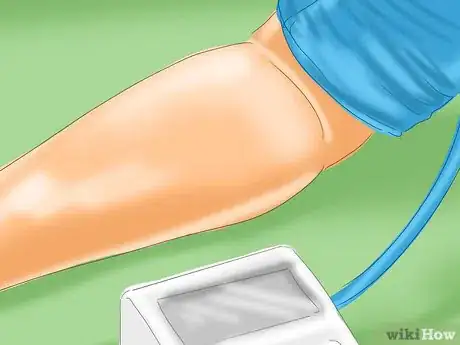

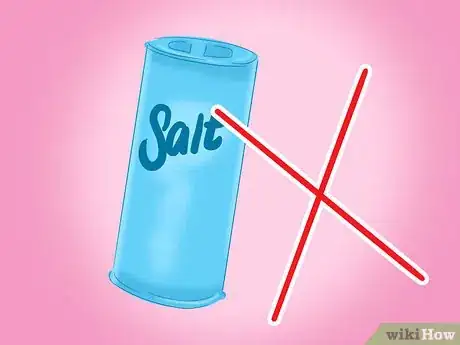


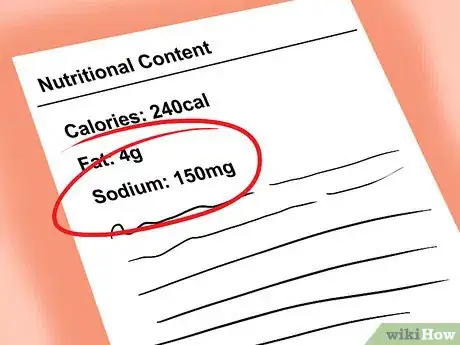
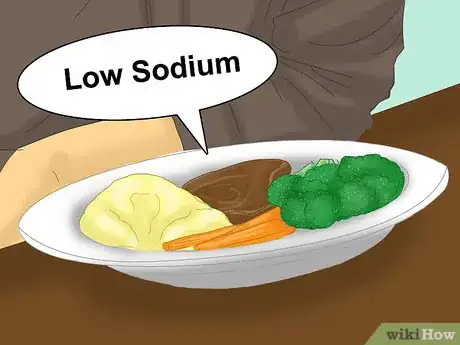
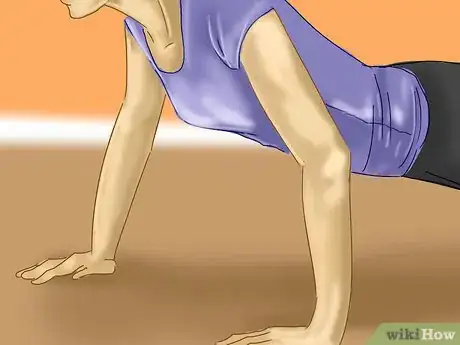



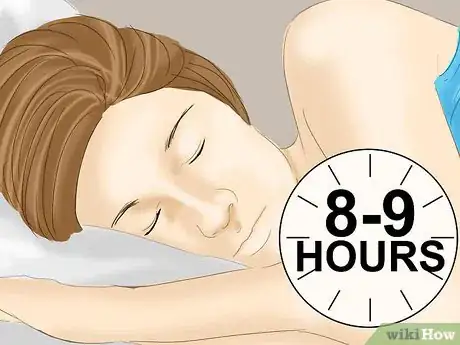
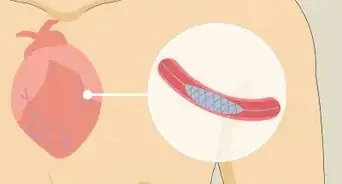

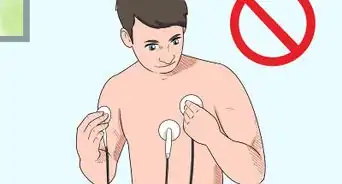



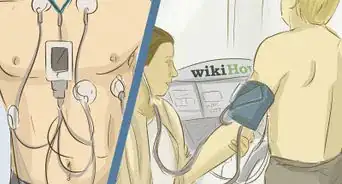















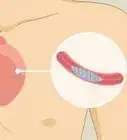
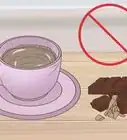
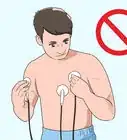




































Medical Disclaimer
The content of this article is not intended to be a substitute for professional medical advice, examination, diagnosis, or treatment. You should always contact your doctor or other qualified healthcare professional before starting, changing, or stopping any kind of health treatment.
Read More...